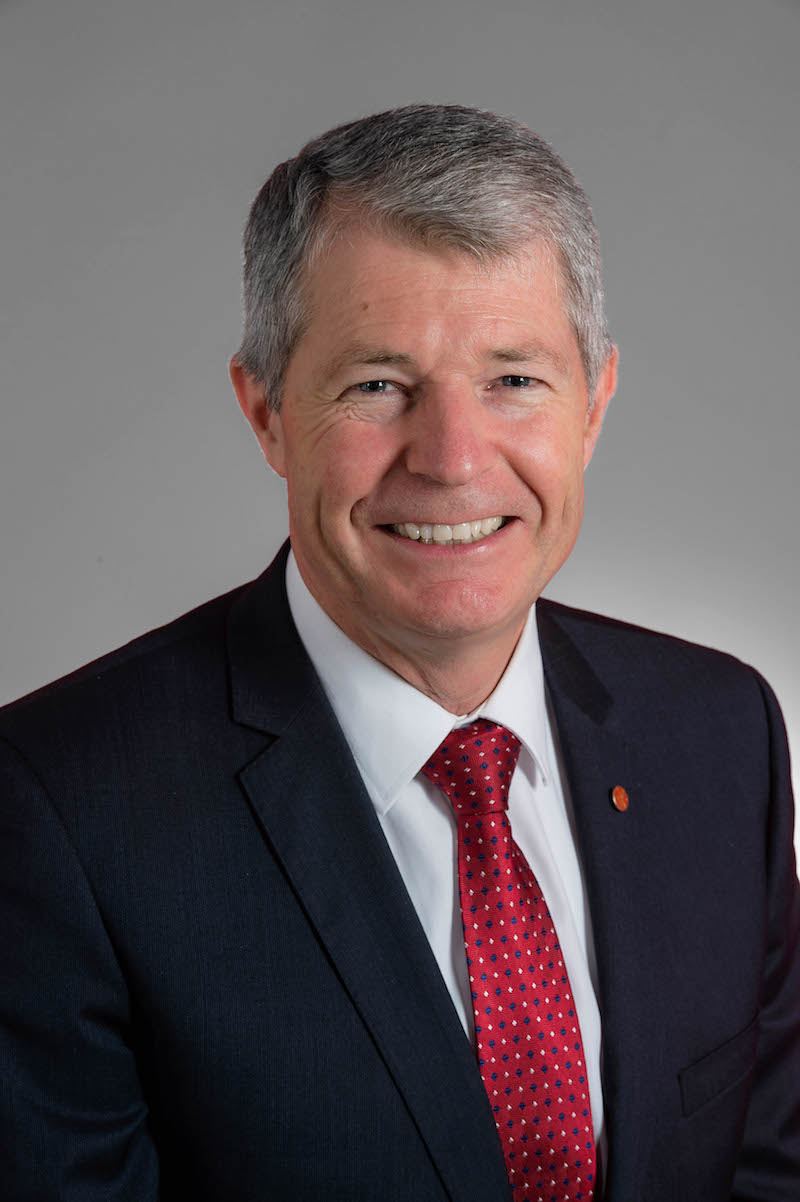Lessons for Australia’s FADT policy from COVID
Senator the Hon. David Fawcett
Chair
Joint Standing Committee on Foreign Affairs, Defence and Trade

Inquiry into the implications of the COVID-19 pandemic for Australia’s foreign affairs, defence and trade
Chair's Foreword
The lessons from the COVID-19 pandemic are not primarily about health.
The behaviour of nation states in response to COVID-19 has called into question assumptions about the extent of adherence to the global rules-based order—assumptions that have underpinned many aspects of Australia’s foreign affairs, defence and trade policy in recent decades.
COVID-19 has also exposed structural vulnerabilities in some of the critical national systems that enable Australia to function as a secure, prosperous first-world nation. Many of these vulnerabilities are caused by supply chains that rely on just-in-time supply from the global market. In some cases, this is exacerbated by supply coming—in whole or substantial part—from companies that are subject to extrajudicial or coercive direction from some foreign governments.
Decreased support for the norms of the rule-based order negatively affects collaboration and conflict resolution between nation states, as well as the efficacy of commercial relationships between companies throughout supply chains.
A key lesson from COVID-19 is that returning to “business as usual” is not an option if Australia is to be resilient, remaining secure and prosperous in the face of future crises.
Australia’s Strategic Update 2020 highlights that another zoonotic pandemic is only one of the potential crises facing Australia and our region that would disrupt “business as usual”. Unexpected or sustained disruption due to grey-zone, coercive, or military actions are likely to substantially degrade if not disable one or more of Australia’s critical national systems.
Australia must identify the supply chains that underpin critical national systems and work with industry to reduce—if not eliminate—vulnerabilities and increase resilience. This will require changes to the Commonwealth’s procurement rules to specifically recognise the value for money that is inherent in partnerships with industry that create or expand sovereign capabilities which provide identified enablers for a critical national system. It will also require more whole-of-government strategic assessment, investment and diplomatic effort to increase resilience through trusted and transparent partnerships with like-minded nations.
Australia, like much of the Indo-Pacific region has benefited from the global rules-based order which has underpinned increased security and prosperity. Poor outcomes from some key multilateral institutions has decreased engagement by some nations and there is evidence of authoritarian nation states seeking to influence global rules and standards away from the transparent, plural and democratic values that have informed global norms in recent decades. It is clearly in Australia’s national interests to work with like-minded nations to ensure that reforms to key multilateral institutions are effective and consistent with democratic values and the rule of law.
COVID-19 has seen Australia respond effectively, including with novel approaches to governance—such as National Cabinet—and partnerships with industry that have placed strategic outcome over rigid adherence to established process.
Responding to the lessons of COVID-19 identified in this report will require a similar commitment to whole-of-government, outcomes-focussed assessment and timely, funded implementation of novel solutions which will challenge the status-quo.
Responding to the lessons of COVID-19 identified in this report will require a similar commitment to whole-of-government, outcomes-focussed assessment and timely, funded implementation of novel solutions which will challenge the status-quo.
I thank the many witnesses who made submissions and took the time to give evidence to the Committee during this inquiry to ensure that Australia learns, responds and becomes more resilient.
I commend this report and its findings to the reader and look forward to engagement by Government with the recommendations to keep Australia a secure, free and prosperous nation.
Biography
Senator the Hon. David Fawcett
David served in the Australian Defence Force for over 22 years. An Army pilot, he flew helicopters and fixed wing aircraft and was the Senior Flying Instructor at the School of Army Aviation in Queensland.
Graduating as an experimental test pilot from the Empire Test Pilots’ School (UK), he finished his full time career in Defence as the Commanding Officer of the RAAF Aircraft Research and Development Unit.
Elected to the House of Representatives as the Member for Wakefield (SA) in 2004, he served in the Parliament until 2007. David continued to fly as a test pilot and ran a small business working in the Defence and Aviation sectors prior to being elected to the Senate in 2010, 2016 and again in 2019. In the 45th Parliament, David was sworn as the Assistant Minister for Defence. David is currently the Chair of the Parliamentary Joint Standing Committee on Foreign Affairs, Defence and Trade, Chair of the Senate Standing Legislation Committee on Environment and Communications, and member of the Parliamentary Joint Committee on Intelligence and Security.
David’s experience in aviation has helped to facilitate change in Australia’s aviation policy and approach to aviation safety regulation. With tertiary qualifications in science and business administration, he is known for his evidence-based approach to policy development and oversight with a focus on outcomes that are in the national interest.
David is a strong advocate for initiatives that would lead to a more effective and efficient national defence force, including the development of a sustainable defence industry capability. His extensive and widely respected policy understanding has led to a number of appointments, including Chair of the Parliamentary Joint Standing Committee on Foreign Affairs, Defence and Trade.
As Chair of the Parliamentary Joint Committee on Corporations and Financial Services in the 44th Parliament, he led an inquiry into the educational and professional standards of the financial advice industry. This body of work has been a catalyst for significant legislative and industry-led reforms in the finance sector.
Having lived in Asia, the UK and across Australia, David is proud to call South Australia home. He is a keen sailor and is married to Lorna and together they have two adult daughters.
Authorised by Senator the Hon David Fawcett, Liberal Party of Australia, Adelaide, SA.